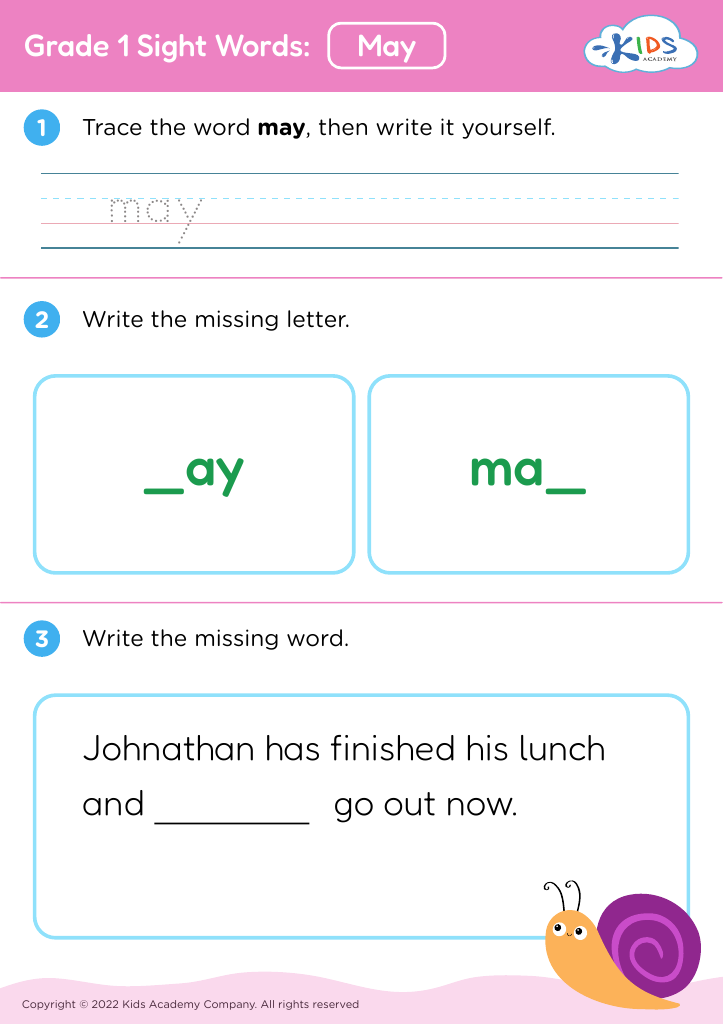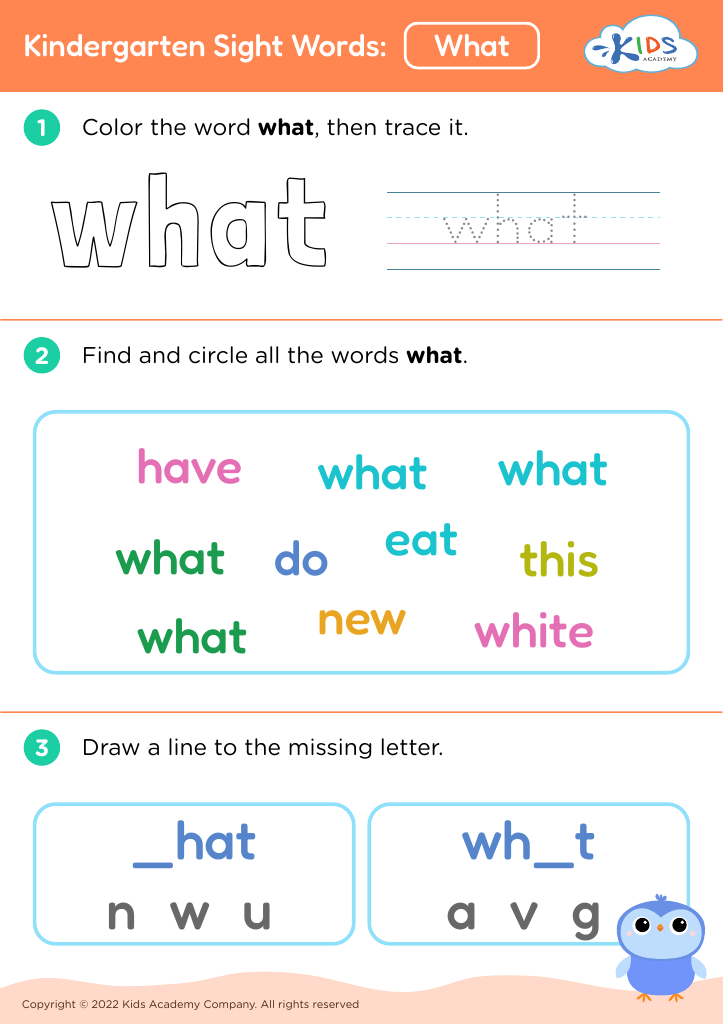Recognizing numbers Building Vocabulary Worksheets for Ages 6-7
3 filtered results
-
From - To
Enhance your child's learning with our "Recognizing Numbers: Building Vocabulary Worksheets for Ages 6-7". Designed to support early math and language skills, these engaging worksheets help children identify and understand numbers while enriching their vocabulary. Each activity encourages fun learning through colorful illustrations and interactive exercises that stimulate recognition and comprehension. Our worksheets take a creative approach, allowing kids to connect numbers with words and real-world concepts, making learning enjoyable and effective. Perfect for parents and teachers alike, these resources foster both numerical and linguistic development, setting a strong foundation for future academic success. Unlock the joy of learning today!
Recognizing numbers and building vocabulary are foundational skills essential for children aged 6-7, laying the groundwork for future learning.
Firstly, recognizing numbers is integral to a child’s mathematical development. At this critical age, children begin to understand basic arithmetic concepts like addition and subtraction, which are imperative for their academic success. Number recognition aids in developing problem-solving skills, logical thinking, and helps them make sense of the world, whether it's counting objects, telling time, or managing money.
Equally important is building vocabulary. A rich vocabulary enhances reading comprehension and effective communication. During ages 6-7, children are expanding their literacy skills and becoming increasingly independent readers. The ability to recognize and use a diverse range of words allows them to express their thoughts and emotions more clearly, fostering self-confidence.
Moreover, both number recognition and vocabulary building encourage cognitive development and engagement with their surroundings. They lead to improved social interactions and relationships, equipping children with the tools to articulate their needs and engage in meaningful conversations. Thus, parents and teachers should prioritize these skills, as they pave the way for lifelong learning and development in academic and personal domains.




















